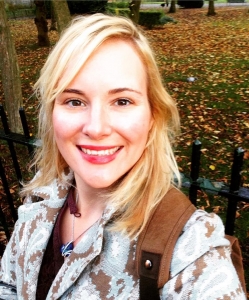MacKenzie Common, LSE PhD student in Law has spent some time building her portfolio of experience alongside her studies by working part time in schools, supported by the Brilliant Club. Here she writes about that experience.
One of the most rewarding experiences of my PhD has been working for The Brilliant Club.
The Brilliant Club is a non-profit organisation that places PhD students in non-selective state schools across the UK to teach students about their speciality subjects. At least half of the students in each class should be eligible for free school meals and the goal is to encourage young students to think about going to university and expose them to university-style teaching and subjects they may not have previously encountered. You work with a small group of students, twelve at each school, and teach two hours a week for six weeks. PhD students are paid per placement and there are three optional placements a year (it is your choice if you want to work on them).
That is the mandate of the organisation but it somehow sounds so much drier than the actual experience. I taught students at a number of different schools in Ilford, two groups of 7-8 year-olds (I taught them about rights) and one group of 12-13 year-olds (who I taught about war). It was wonderful to walk into a classroom and spend two hours a week with a group of excited students, the pre-teens all excitedly trying to tell me about themselves, the children all straining to hold their hand the highest in the air, their faces begging me to pick them to answer the question. Teaching in Ilford gave me the opportunity to experience a new neighbourhood in London (one with fantastic Indian food and beautiful sari shops) and to remember what a gift an education is and how lucky one is at a university like LSE. The Brilliant Club placement also involved taking students to a launch trip and a graduation trip at different universities. The 12-13 year-olds went to Cambridge and it was fantastic to see that ancient university through their eyes, watching them wander around the centuries-old buildings, becoming accustomed to the idea that they might find themselves there after A-levels.
The placements end with a graduation, where you hand out diplomas and take pictures with the students and their families. One of my primary school placements gave a speech about how much they had loved having me as a teacher and the sight of them standing up there, in their best clothing, with shining, open faces brought tears to my eyes. I hope that someday, when they go to university, they will be confident that they belong there.
I would encourage PhD students to consider working for the Brilliant Club for a number of reasons. First, it is a source of short-term employment and provides some extra money during your degree. Second, you will get teaching experience and can even design your own course, attractive skills for future academics to demonstrate. Finally, and most importantly, it is a fulfilling way to use the education you’ve acquired to benefit the community and to help the next generation of students grow to their potential.
If you are interested in learning more about additional experience you can gain with the Brilliant Club or other organisations, Catherine Reynolds, the Careers Consultant for PhD students in LSE Careers is very happy to talk to you. Book an appointment on line on Career Hub.
To help you engage in UK Parliamentary matters, the LSE Public Affairs team have up to date information and contacts. Email: comms.publicaffairs@lse.ac.uk. LSE Careers advertises annual paid Parliamentary Internships as well as other short-term opportunities in research and policy roles on CareerHub.
PhD Internships are available in different organisations, public sector, commercial and research. For example, in recent years we have helped PhD students apply for intern experience:
- In research roles at British Library PhD Research Placements, London
- In the corporate sector: McKinsey and Company 3-day Insight Programme in the UK; BCG Corporate Insights
- In Civil Service roles at: The Congressional Budget Office, Washington, DC. Summer Internship Program and UK Civil Service placements
LSE Consulting have research work and consultancy available under the LSE umbrella. Jeannine McMahon is Director of Consulting.
LSE Summer School teaching and widening participation roles are another way to build experience during your PhD at LSE. These are advertised on the LSE jobs pages.
International PhD students can undertake work and internships as long as they fit within your visa requirements. Students studying for a PhD at LSE with Tier 4 (General) visas are eligible to apply for permission to work for 12 months at the end of their studies with the Doctorate Extension Scheme. You can find more information on the ISVAT website. If you have any further queries about working during your studies as an international student, there is more detailed information on the ISVAT website.



